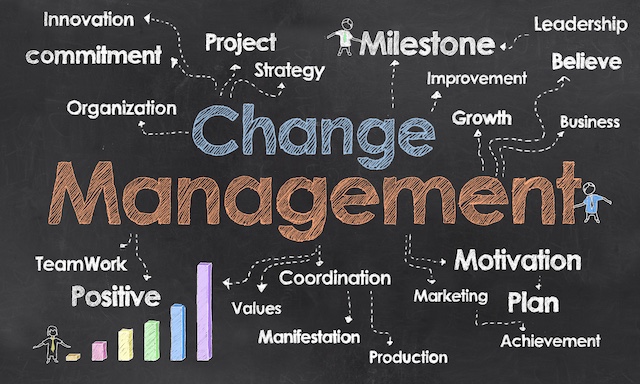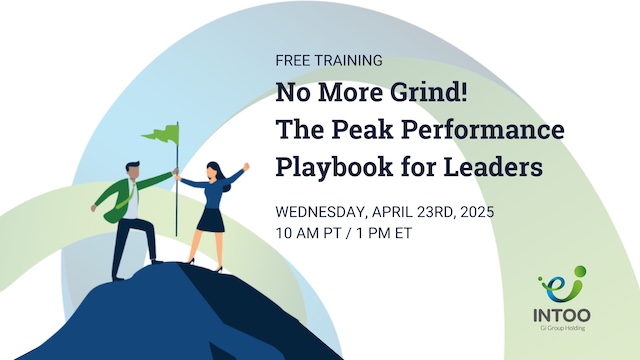While business coaches and career coaches are common, outplacement coaching serves a professional in a specific situation: job loss. It is typically part of a program given by employers to individuals impacted by layoffs as part of a severance package. Outplacement coaching is provided by career coaches to those who have recently experienced or are experiencing job loss, most often as a result of layoffs or reductions in force. Outplacement coaching consists of sessions wherein a recently unemployed individual meets with a coach for guidance around a job search. Depending on the individual’s needs, these meetings may instead, or additionally, address retirement or entrepreneurship.
Outplacement coaching is usually provided as part of a greater outplacement program, consisting of a digital platform of resources, including assessments, guides, workshops, resume builders, a job board, and more. Ideally, an outplacement coach will incorporate the resources of the platform when working with a to create a strategy toward obtaining new employment.
Outplacement Counseling for Individuals Impacted by Layoffs
While outplacement coaches may use different approaches and methodologies to guide their candidates, typically their services will include the following essential elements.
Emotional support and encouragement
Being laid off is often a stressful experience, with emotional, mental, financial, and even physical consequences for the impacted employee. A well designed outplacement coaching program will guide the employee through resources to address each aspect of their well-being to increase their wellness and help their job search be as productive as possible. In addition, an experienced, empathetic coach will engage the employee in conversations that can help the individual address concerns that might be interfering with their job search success, and will also be a sounding board whenever the individual has a concern or question relating to their unemployment or job search.
Discovery and identification of interests, skills, needs, and wants
During initial meetings with a candidate, outplacement consultants will have discussions about the job seeker’s goals and potential fears or roadblocks. As the individual takes assessments and completes exercises on the outplacement platform, they may share the results with their coach in order to get recommendations for next steps. Each impacted individual is different. Their wants and needs can be influenced by their experience, age, financial situation, geography, and much more. The coach’s goal is to fully understand not only what the individual desires in a new role, but also their “why”—the aspects of a job that will make it a meaningful career for them, such as better work/life balance, culture, company mission, purpose, etc. Understanding the background and reasoning behind the job seeker’s wants often opens them up to exploring roles and/or industries the individual may not have previously considered.
Assessments help to identify not only interests but also temperament and soft skills, all of which is valuable information as the candidate and coach partner to explore new career paths and identify the work setting in which a candidate might feel most comfortable and be most successful, as well as areas where the individual might seek improvement to become more adaptable and succeed in new situations. Skills assessments can help the outplacement counselor present a job search strategy geared toward the individual’s strengths, and may even reveal previously unexplored career matches. In the case where a job seeker wants a role for which they don’t currently have all the right skills, the outplacement coach can help them identify upskilling opportunities to learn the knowledge and tools needed to meet the job’s requirements.
Building a relationship based on mutual trust enables the candidate to be vulnerable and honest about their utmost dreams and concerns in order to have the most productive outplacement experience that results in making a successful transition.
Job search strategy
When job seekers without outplacement begin their search, most likely they do so without a specific strategy to find the job they want. As a result, they spend far longer searching and expend more energy than those using the benefit. A huge advantage of working with an outplacement coach is that they help you devise a strategy incorporating personal branding, networking, a refined resume (and often multiple versions of it for different cases), tailored cover letters, interview practice, upskilling, and more. Not only does working with a coach this way reduce unnecessary work, it provides clarity and actionable steps that help a job seeker maintain momentum and confidence during their transition.
Each job search strategy is tailored to the individual being coached. Those who haven’t been in the job market for a long time may need more help building an effective LinkedIn profile in order to be noticed by more recruiters, for example. An introvert may need more assistance with networking and interviewing. A qualified coach will glean from conversations and assessments what actions and processes would help the individual make the most progress.
Resume writing and review
Resume best practices are constantly changing, which is one reason why the help of an outplacement coach who is an experienced resume writer is so important to the success of a job seeker. Beginning with an existing resume or starting from scratch, an expert coach will help an individual refine their resume to get the job they want. Understanding the job seeker’s skills and achievements is critical to ensure the resume accurately and positively represents their experience. In addition, using current best practices and market knowledge, a coach will ensure the resume has the right keywords to avoid being filtered out during the application process.
A carefully written cover letter is also helpful in attracting the attention of hiring managers, and a coach will help a job seeker ensure it projects their enthusiasm for the desired position while also drawing attention to what makes them particularly qualified.
Networking and personal branding
While the statement “It’s all who you know” may hold some truth with regard to building a successful career, how should a job seeker make use of their existing relationships, and how can they build their networks? Outplacement coaching helps job seekers explore potential connections between those they know and opportunities. The coach guides the individual on how to appropriately reach out to personal, professional, and more distant connections, as well as how to find networking groups, associations and events, both online and in-person, that can help grow a professional circle and broaden exposure to hidden opportunities.
One’s online persona is extremely important in a job search, and a coach will also help an individual develop personal branding that best highlights their experience, skills and accomplishments in a way that will attract recruiters and aid in job applications.
Interview skills and preparation
Preparing for an interview independently can feel daunting, and it can be difficult for a job seeker to ascertain what type of impression they give to others in that setting, whether the interview is given remotely or in person. Working with a coach provides a significant benefit by allowing the individual to role play and practice common interview questions, as well as specific ones that may arise pertaining to the position.
The coach can provide feedback on body language, soft skills, and responses so that the individual feels confident and able to address whatever questions come their way. A coach will also provide suggestions about specific considerations one should be aware of for remote interviews, including lighting, setting up one’s space, and ensuring technology is working properly ahead of time.
Offer negotiation
It can be tempting to a job seeker to accept the first offer they receive, but doing so isn’t always to their benefit. An outplacement coach can help a candidate sort through multiple offers or negotiate an offer according to the job market, geographic location and other factors, in addition to the individual’s expectations and needs. Most hiring managers anticipate negotiating salary, and a result that satisfies the candidate will help them feel more excited about the opportunity.
Outplacement Coaches’ Experience
Not all outplacement coaching programs are equal, and their effectiveness is affected by the experience and qualifications of the coaching team. Ideally, the provider’s coaching staff should be made up of professionals who have extensive experience in career development and transition to support the diversity of candidates that they service. In addition, a well rounded coaching team should consist of certified resume writers and career development professionals, including those with HR, talent management and industry specific experience. Because job markets and career trends are constantly changing, it’s also important that the coaches participate in continuing education and professional development with organizations such as the National Career Development Association, International Coaching Federation and other recognized professional and thought leadership affiliations to stay current on best practices.
Selecting an Outplacement Service with Quality Coaching
The effectiveness of an outplacement program depends on a number of factors but the quality of the coaching is vital. Potential providers should be able to supply you with feedback from job seekers about their coaching experience. By surveying the inclusion of all of the programmatic elements listed above, the coaches’ experience, and their overall rating, you may be able to more easily gauge the potential effectiveness and value of the outplacement program you are considering. INTOO’s outplacement program helps employees transition to new jobs through unlimited one-on-one, on-demand coaching from premier career counselors, resume reviews, and other career services. Learn more about how our outplacement program can benefit your company when you’re transitioning employees.
Robyn Kern is a seasoned business writer who has written in the HR, education, technology, and nonprofit spaces. She writes about topics including outplacement, layoffs, career development, internal mobility, candidate experience, succession planning, talent acquisition, and more, with the goal of surfacing workforce trends and educating the HR community on these key topics. Her work has been featured on hrforhr.org and trainingindustry.com.











